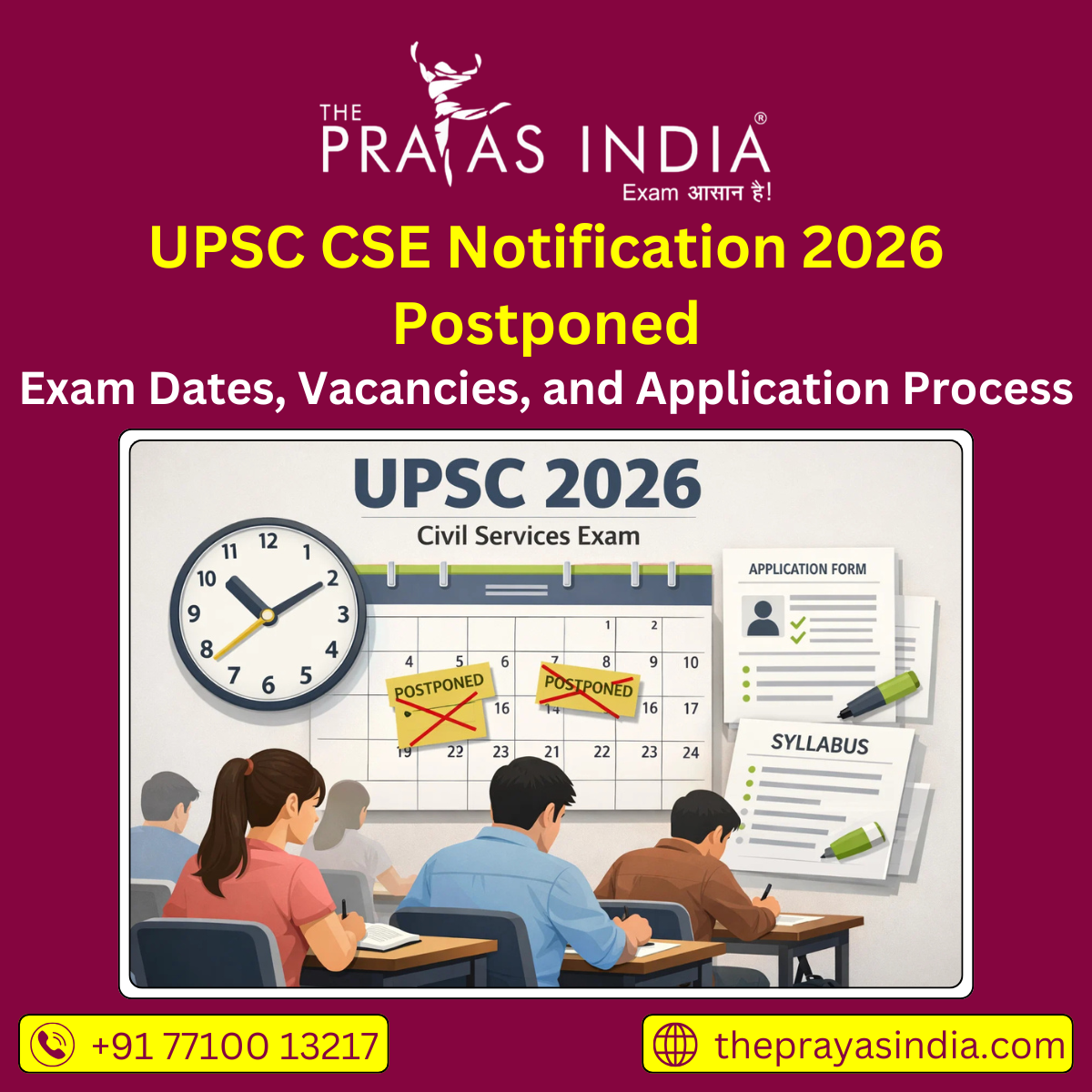Citizenship in India: Laws, Amendments, and Constitutional Provisions
UPSC Prelims GS Paper 1 and Mains GS Paper 2 (Polity – Citizenship, Fundamental Rights).
Introduction
Citizenship is the legal recognition of an individual as a member of a state or nation. It establishes a relationship where the citizen owes allegiance to the state and enjoys rights and protections provided by the state’s constitution and laws. In India, citizenship defines the full membership of the Indian polity and guarantees civil and political rights. Recently, citizenship has become a prominent topic, especially in the context of the National Register of Citizens (NRC) in Assam, which aims to identify genuine Indian citizens.
National Register of Citizens (NRC)
The National Register of Citizens was first prepared in 1951 after the census to record Indian citizens residing in Assam. The register was village-wise, recording households and members. It was intended to identify Indian citizens and distinguish them from illegal migrants who entered the state, especially from neighbouring countries.
NRC remained static for decades until it was updated between 2013 and 2019 under Supreme Court supervision. The final NRC, published on August 31, 2019, listed about 3.1 crore persons but excluded nearly 1.9 crore applicants, many of whom fear statelessness.
According to the NRC rules, excluded individuals have 120 days to appeal their exclusion before Foreigners’ Tribunals, quasi-judicial bodies empowered to decide citizenship status under the Foreigners Act, 1946. However, being excluded from the NRC does not automatically make someone a foreigner; only the Tribunal can declare that legally.
The NRC process is specific to Assam due to its unique history of migration and security concerns. The Election Commission of India (ECI) introduced “D voters” (doubtful voters) in 1997, who remain on the electoral roll but cannot vote unless confirmed as citizens by the Tribunal. The NRC process brought complex legal and social challenges, shaping political debate nationwide.
Constitutional Provisions on Citizenship
Citizenship provisions originate in Part II (Articles 5-11) of the Indian Constitution. This legal foundation governs who is a citizen and their rights.
- Article 5: Citizenship at the commencement of the Constitution, granting it to those born in India or domiciled here.
- Article 6: Rights of citizenship for persons migrating from Pakistan before July 19, 1949.
- Article 7: Citizenship rights of persons migrating to Pakistan but returning to India on resettlement permits.
- Article 8: Rights of citizenship of persons of Indian origin residing outside India.
- Article 9: Persons voluntarily acquiring foreign citizenship lose Indian citizenship.
- Article 10: Continuance of citizenship for persons deemed citizens under Articles 5–9.
- Article 11: Empowers Parliament to regulate citizenship and the acquisition or termination of citizenship by law.
These articles were effective immediately upon the adoption of the Constitution on November 26, 1949, underscoring citizenship’s fundamental importance.
Citizenship Act, 1955 and Its Provisions
The Indian Citizenship Act, 1955, supplements constitutional provisions by giving detailed criteria and processes for acquiring and losing citizenship.
Modes of Acquisition
- By Birth:
- Born in India between January 26, 1950, and July 1, 1987: automatically a citizen regardless of parents’ nationality.
- Born between July 1, 1987, and December 3, 2004: citizen if either parent is Indian at birth.
- Born after December 3, 2004: citizen if both parents are Indian or one parent is Indian and the other is not an illegal migrant.
- By Descent:
- Born outside India to an Indian citizen father (with subsequent amendments adding conditions involving mother and registration at Indian consulates).
- By Registration:
- Persons of Indian origin residing abroad for 7 years can register.
- Persons married to Indian citizens residing in India for 7 years.
- Minor children of Indian citizens.
- By Naturalisation:
- Foreigners residing in India legally for at least 12 years, fulfilling other prescribed conditions.
- By Incorporation of Territory:
- Persons residing in territories newly incorporated into India acquire citizenship as per government notification.
Termination of Citizenship
Indian citizenship can be lost by renunciation, deprivation, or termination under specific legal provisions.
Amendments to the Citizenship Act
- 1986 Amendment: Imposed conditions on citizenship by birth, moving away from the absolute jus soli principle.
- 2003 Amendment: Further tightened citizenship for persons born after December 2004, barring illegal migrants from claiming citizenship.
- Citizenship Amendment Act (CAA), 2019: Provided a pathway to citizenship for persecuted religious minorities (Hindus, Sikhs, Buddhists, Jains, Parsis, Christians) from Pakistan, Bangladesh, and Afghanistan who entered India before December 31, 2014, with reduced residency requirements.
The CAA generated debate over its exclusion of Muslims and challenged India’s constitutional principle of secularism.
Special Citizenship Provisions in Assam and Section 6A
Assam’s unique citizenship challenges stem from large-scale migration from erstwhile East Pakistan (later Bangladesh). The Assam Movement (1979–1985) demanded detection and deportation of illegal migrants post-1971.
- Assam Accord (1985): Set March 25, 1971, as the cut-off date to identify and deport illegal migrants, leading to a modification of citizenship law for Assam.
- Section 6A (Citizenship Act): Applies only to Assam, granting automatic citizenship to those entering before 1966, and a 10-year probation path for those arriving between 1966 and 1971.
- Illegal Migrants (Determination by Tribunal) Act, 1983: Was struck down as unconstitutional for being too lenient for migrants.
- Foreigners Tribunals: Established to decide citizenship cases of doubtful persons as per Foreigners Act, 1946.
The constitutionality of Section 6A remains under review, especially regarding differing cut-off dates for Assam and rest of India.
Challenges and Current Issues
- Legal, political, and social implications of the NRC and citizenship laws provoke fear and debate over statelessness, rights, and discrimination.
- Non-citizens risk exclusion from public services, voting, education, and employment.
- The government must balance sovereignty, security, humanitarian concerns, and constitutional values.
- Political rhetoric sometimes escalates communal polarization, risking societal harmony.
Conclusion
Citizenship in India is a constitutionally protected yet evolving concept that defines membership in the nation-state and secures democratic rights. While the NRC exercise aimed at identifying genuine citizens has intensified public discourse, it should be implemented with justice, fairness, and transparency to uphold India’s secular values and pluralistic fabric.
The government must provide clarity and support for excluded persons while protecting citizen rights. Inclusive solutions and dialogue, not exclusion or politicization, are necessary to maintain social cohesion and democratic integrity.




![Prayas-तेजस [UPSC CSE Sociology Optional] – Online & Offline](https://theprayasindia.com/wp-content/uploads/2025/09/Prayas-तेजस-UPSC-CSE-Optional-Subject-The-Prayas-India-300x300.png)
![Prayas-सूत्र [UPSC CSE Materials (Hardcopy)]](https://theprayasindia.com/wp-content/uploads/2025/09/Prayas-सूत्र-UPSC-CSE-Study-Materials-Hardcopy-The-Prayas-India-300x300.png)
![Prayas-मंत्रा [UPSC CSE CSAT]](https://theprayasindia.com/wp-content/uploads/2025/09/Prayas-मंत्रा-UPSC-CSE-CSAT-The-Prayas-India-300x300.png)
![Prayas सारथी [UPSC CSE One on One Mentorship]](https://theprayasindia.com/wp-content/uploads/2025/09/Prayas-सारथी-UPSC-CSE-One-on-One-Mentorship-The-Prayas-India-300x300.png)










